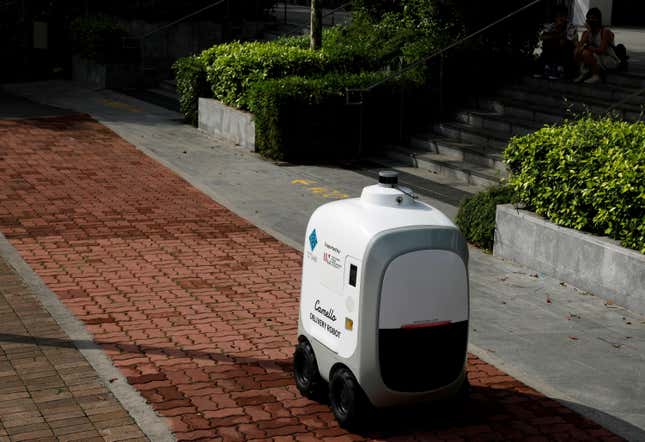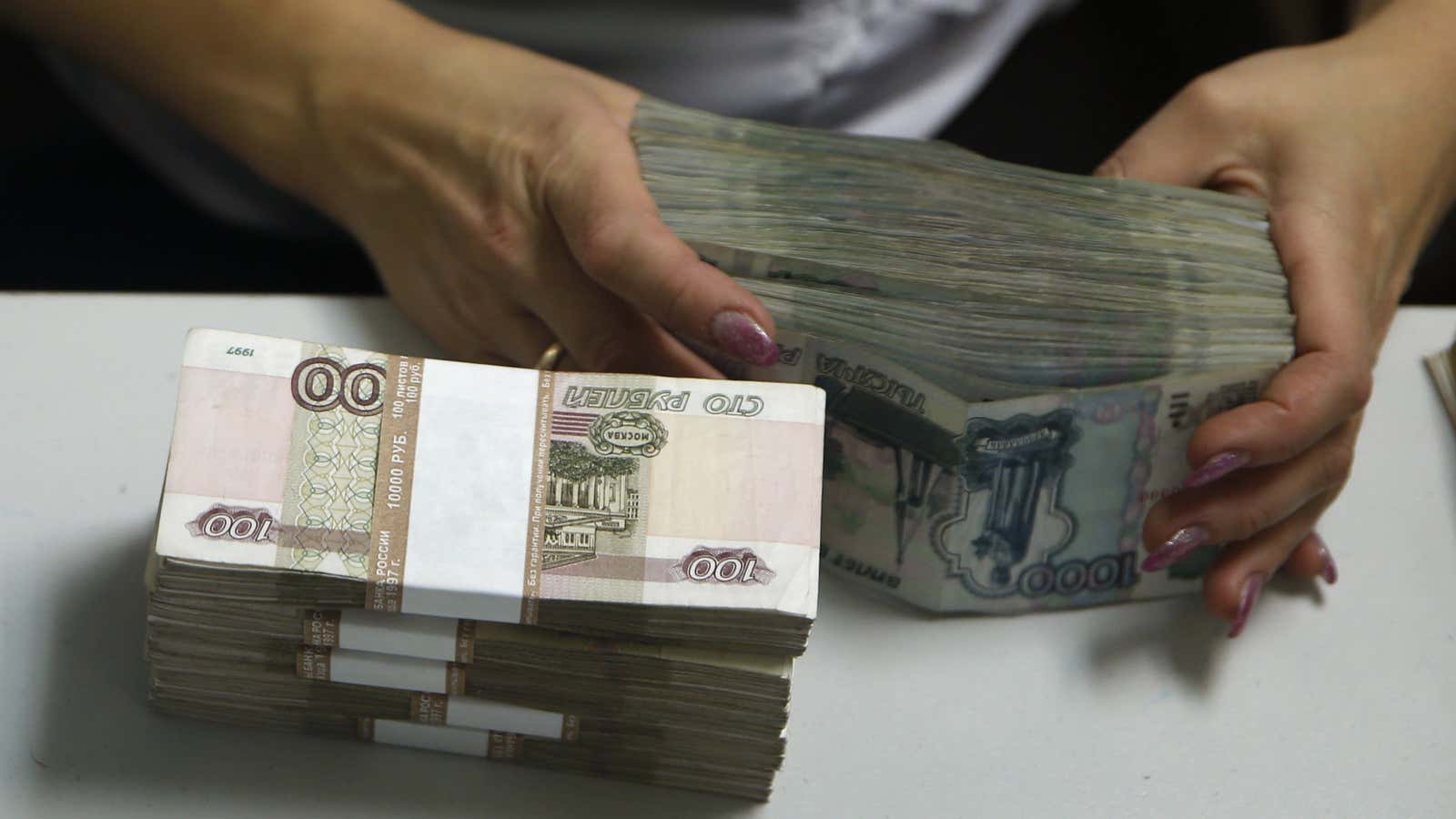Good morning, Quartz readers!
Don’t miss out on our World Economic Forum coverage! Sign up for our new limited series newsletter and stay in the Davos loop.
Here’s what you need to know
Russia’s economy slowed. First-quarter reports showed a higher slip in growth rate than expected, with predictions for a “deep plunge” in the second quarter.
Joe Biden invoked the Defense Production Act to alleviate the baby formula shortage. Companies that supply materials to formula manufacturers will be required to fill those orders ahead of their other customers.
McDonald’s and Wendy’s are being sued for falsely advertising their burger sizes. The suits, which follow a similar allegation against Burger King in March, claim the fast-food chains use photographs of undercooked beef patties to make them appear larger than they really are.
China signaled a loosening of its tech crackdown. Analysts stated it’s unlikely to be a policy reversal. Meanwhile, internet giant Tencent reported a steep hit to profits from covid and regulatory restrictions.
The EU committed $314 billion to wean off Russian oil. The “REPowerEU Plan,” which seeks to end oil reliance by 2030, also aims to expedite a transition to renewables.
The company that owns British Airways placed an order for 50 Boeing 737 MAX airplanes. The order provides a much-needed boost to the struggling US aircraft manufacturer after earlier versions of the MAX caused two major crashes in 2018 and 2019.
What to watch for
The US Food and Drug Administration (FDA) commissioner will testify before Congress today on the agency’s response to an ongoing baby formula shortage.
75%: Share of the US formula market held by two companies
40%+: The out-of-stock rate for formulas across 20 major US retailers in May
6: Formula manufacturers, some of whom will also testify, registered with the FDA—the highly consolidated formula industry means that there isn’t extra supply hanging around
⅔: Share of American babies who rely on formula at least in part in their first half-year
0: Guaranteed weeks of US paid parental leave, which doesn’t exactly encourage breastfeeding
~50%: Amount of all formula purchased in the US that comes from those receiving WIC benefits, a federal assistance program for low-income mothers
$28 million: Proposed amount of emergency FDA funding that aims to increase supply by using new domestic and international plants, which must be FDA-approved
Understanding Sudden Infant Death Syndrome
“For those parents who have suffered a SIDS death, I want to reassure them that their babies had a deficit, they weren’t negligent.” — Carmel Harrington, a lawyer-turned-sleep-researcher whose findings on Sudden Infant Death Syndrome (SIDS) were recently published
While the US government attempts to tackle one infant health issue, researchers have made great strides untangling another. SIDS affects thousands of healthy infants a year, who die in their sleep for no clear cause, even when their parents practice safe sleeping practices.
Harrington, who lost her own baby to SIDS nearly 30 years ago, found that babies who had died from SIDS had not developed sufficient amounts of an enzyme that helps them wake from sleep, such as when they’ve flipped over and can’t breathe. While the cause of these low enzyme levels, which may stabilize after the infant reaches six months of age, isn’t known, the knowledge of the biological component may help give grieving parents some peace.
Where is the future we were promised?

In recent years, urban planners and leaders have embraced new technology through the “smart city” concept—the idea that a wide range of digital tools can be used to collect data and connect city systems, allowing them to run more efficiently. Beset by privacy concerns and other holdups, the smart cities movement hasn’t delivered on many of its promises.
What will tomorrow’s cities look like, realistically? ✦ Read all about it in the latest issue of the Forecast, available exclusively to members. Get the next issue as well as the Weekend Brief while supporting the rest of Quartz’s journalism, simply by subscribing today.
Quartz’s most popular stories
🤬 Ryanair CEO’s obscene rant about Boeing management
😬 The Ukraine war is creating a jobs crisis in Russia
😬🤬 Miami’s mayor was jubilant about MiamiCoin—then it lost nearly all its value
🚗 The cheapest US states for buying an EV
🔨 America still isn’t building enough homes
🔪 No one wants to work in restaurants anymore
Surprising discoveries
Cats know each other’s names… A Japanese study suggests they can distinguish between the monikers of familiar felines.
…Which may come in handy when they’re under house arrest. A German town has ordered cats to stay inside to protect crested lark nests.
A beer at New York’s LaGuardia Airport may cost you US$27… Transportation authorities are taking on “totally indefensible” food prices.
…And overpriced coffee in Italy qualifies as police business. A Florence coffee shop customer called the cops after getting charged €2 (US$2.10) for an espresso.
Dyslexia exists in every language. That includes syllabic languages like Japanese and logographic languages like Chinese. Learn more on this week’s episode of the Quartz Obsession podcast.
🧠 Listen on: Apple Podcasts | Spotify | Google | Stitcher
Our best wishes for a productive day. Send any news, comments, best cat names, and cheap beverages to [email protected]. Reader support makes Quartz available to all—become a member. Today’s Daily Brief was brought to you by Sarah Todd, Michelle Cheng, Julia Malleck, Susan Howson, and Tim McDonnell.
